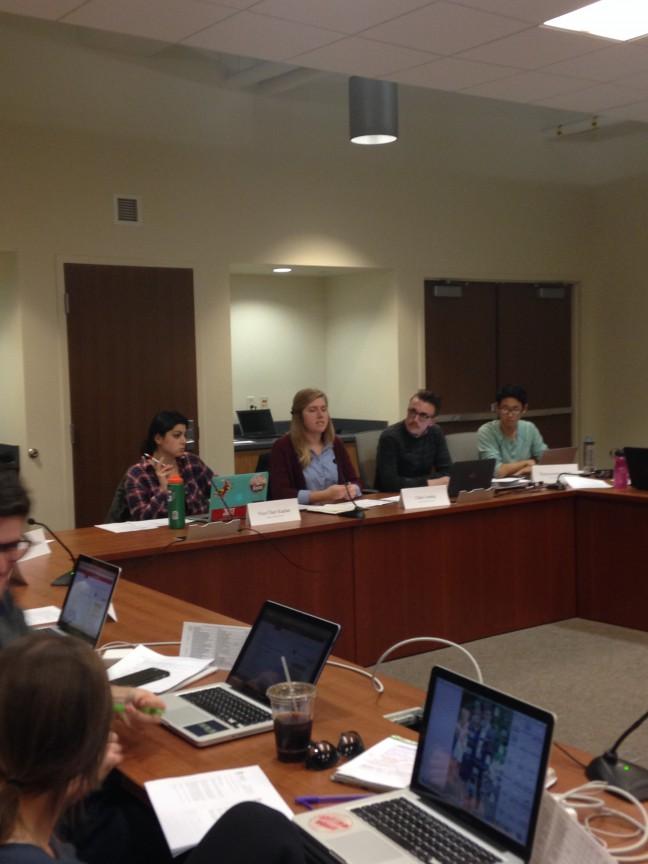At the Associated Students of Madison Coordinating Council meeting, a presentation was given about students’ responses to sexual assault issues, and the committee discussed the possibility of new positions in ASM and how shared governance affects organizations on campus.
Shared governance
ASM Chair Madison Laning also discussed how the shared governance policy was changed within the state statute and how to solidify this change on campus. The committee wants to gather feedback from students for ideas on how to educate other organizations on the effects they will face due to a change in shared governance.
Committee members agreed one way to discuss shared governance with other organizations on campus would be to hold informational sessions tailored to the different organizations. The main focus, however, are organizations who are the most affected by the change. They also suggested working with faculty would be valuable because they are given one of the largest voices on campus.
ASM liaisons
During open forum, Chairs Jessica Franco-Morales and Mariam Coker discussed new positions they want to integrate into ASM. They want to create equity and inclusion liaisons who will work for four different sections such as women’s rights, students of color, LGBTQ and disability issues.
These positions will help build relational power on campus. The power of relationships, Franco-Morales said, could increase and improve outreach efforts on campus because it creates a sense of trust between students and ASM.
“ASM is seen as an entity and if we can form more relationships and build up trust with key people and organizations, more people will be aware of what we are doing and will support efforts we are working towards,” Coker said.
Though the liaison positions have existed in the past, Franco-Morales and Coker want to adjust the job description to fit the needs of the campus today, which would entail holding meetings with activists and creating partnerships with organizations on campus. They could also submit bi-weekly reports to student council so the committee is aware of the work they are doing.
Sexual assault
Members from the Shared Governance Committee are also working with students to gather information about what they want to know and change about sexual assault issues on campus.
The committee held seven student engagement sessions, Committee Member Valyncia Raphael said, which were aimed at enabling students and allowing them to participate in discussion to end sexual violence on campus.
While these sessions were mostly student led, members of the university’s administration, such as Lori Berquam, attended to show their support for students. Each session also had multiple feedback sections so students could provide their thoughts in written form as well as anonymously through the UHS website.
The feedback, Raphael said, is then sent to the Association of American Universities and, by doing this, the student voice is reaching all administration involved on campus.
Overall, the students want more training to accompany the Tonight Program. Raphael said they also want to be more involved in decisions and policy making regarding sexual violence.
“We want to empower students to remain active and involved,” Raphael said.














